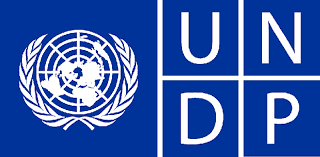The National Bureau of Statistics (NBS) on Thursday reported that Nigeria’s life expectancy was 48.97 as at year 2016, rising marginally from the value of 48.44 recorded in 2013.
The Bureau noted, however, despite the marginal increase in the nation’s life expectancy, male life expectancy at birth dropped slightly from 47.07 in 2013 to 46.69 in 2016 while there was a slight increase in female life expectancy from 49.95 in 2013 to 51.64 in 2016.
In the ‘Computation of Human Development Indices for the UNDP Nigeria Human Development Report 2016’ the NBS reported that the probability of a child surviving to age 20 was 0.7833 while the probability of a child surviving to age 70 was 0.6453.
On the nation’s Income Gross National Index (GNI) the official statistics producing and reporting agency, indicated that Nigeria’s GNI index for 2016 stood at 0.3659, reflecting a drop over the 2013 year of 0.4319
According to the agency, the decline might be due to the recession experienced in the country in 2016.
A further analysis of the report as it relates to the country’s Human Development Index (HDI) and Inequality Human Development Index (IHDI) showed that value of the HDI increased to 0.5114 in 2016 and 0.2712 in 2013 while the IHDI rose slightly to 0.3590 in 2016 from the 0.2591 recorded in 2013.
The Bureau reported further that Nigeria’s Multidimensional Poverty Index, which is an internationally comparable measure of acute poverty for over 100 developing countries, remained very poor during the review period.
For instance, National MPI headcount (M0) stood at 0.225 which means that the poor Nigerians experience 22.5 percent as a share of the possible deprivations that they experienced if all Nigerians were deprived in all dimensions.
A disaggregation of the National MPI headcount (M0) on rural-urban basis showed that poverty was higher in the rural (0.265) than in urban (0.135) in 2016.
The report showed further that in terms of poverty ranking at sub-national level, Osun State had the least poverty level (0.062) while Sokoto had the highest level (0.453).
Sokoto State was closely followed by Jigawa and Yobe States in the poverty index with (0.399 and 0.385) respectively.






